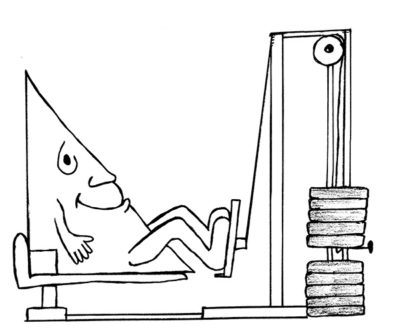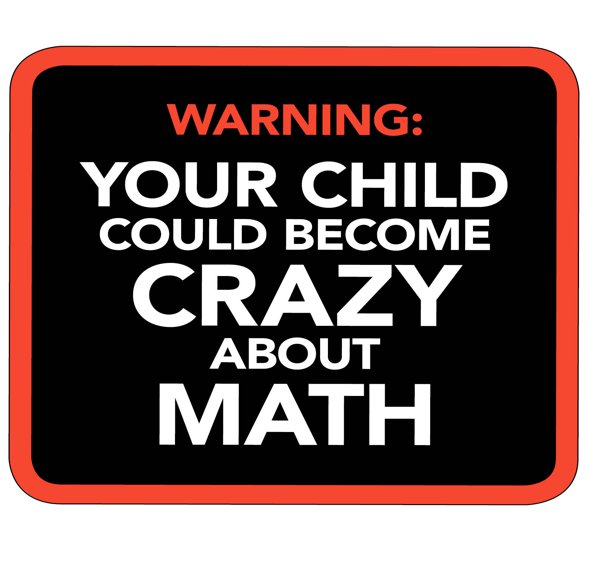As you can imagine, as the proprietor of a math learning center, I spend a fair bit of time interacting with new students who are somewhat reluctant to think they could ever enjoy mathematics. Usually some ice breaking is necessary, and I find it’s always helpful to start a conversation with topics a person likes rather than ones they loathe. Suffice it to say, we very rarely lead off with mathematics!
When kids start talking about the subjects that they like best, one thing I have noticed is that they gravitate toward the subjects they feel they are best at.
“Science? Are you pretty good at science?”
“Uh huh.”
“No kidding, you like art class? Are you a drawer or a painter?”
“Mostly drawing. I’m better at drawing than painting.”
I rarely ask remedial students whether they like math, but I do ask them if they ever have anything that clicks in class. Maybe there’s a topic that a teacher taught really well one day or something that a friend explained that just magically made sense. I use this point to strike a deal with most all of the students who walk into my center:
“How do you feel about your math homework when you know what you’re doing?” I query.
“Well, I guess I like doing it if it’s easy.”
“So you’re telling me that if I make all the math feel that easy, you’d like it quite a bit?”
“Yeah, I mean it’d be okay. I guess I’d like it.”
“Challenge accepted.”
We shake hands and I get to work.
Kids don’t hate math. They hate being confused and frustrated by it.
If you start to notice that your child is developing a defeatist attitude toward mathematics, I would recommend three things:
1. Make sure that they are in a math class that they can truly be successful in.
It is difficult for kids to recognize or articulate that they are in over their heads. They assume that if that’s the class they’ve been placed in and they aren’t succeeding, then the fault must be with them and not with the class. I have met countless students who are in math classes years beyond which they have the ability to meaningfully participate in.
2. Find a way to get them a win.
For a lot of students who have fallen behind in math classes, the correlation between effort and achievement is often depressingly low. Kids will work their tails off if they feel like there’s a chance to be successful, but when they don’t feel like their effort corresponds to achievement, then they are as quick as any rational adult to throw in the towel. Playing math games, doing logic puzzles, or attending math nights at local schools are great ways to give kids a positive association with mathematics and to give them a “brain reset,” to show them that their mental effort (which I lovingly refer to as funstration) pays off. Showing a student a trick or teaching them a new method that really, really works, is a foolproof way to build confidence and get the train back on the tracks.
3. Get them help.
Regardless of whether you enroll in a program like Mathnasium, get them a private tutor, or enlist a charismatic and nerdy (a badge of honor in my center) high school student, make sure that your child is being taught math in a way that makes sense to them by someone who is not only qualified, but ideally quite charismatic and excited about the subject matter themselves. The logical progression of mathematics is not kind to those who fall behind, so the more proactive you are in ensuring that your child is confident, on pace, and able to use their class time well, the more likely they are to have a positive association with math throughout life and perhaps even snag a cool and highly remunerative STEM job along the way.

About Alex Guppy:
Alex Guppy is the owner of Mathnasium of Chattanooga and Mathnasium of Hixson. Between his two centers, he is responsible for the education of over 200 students in Hamilton County who attend nearly 2,000 individualized math lessons per month. In his free time, he enjoys rock climbing, drinking oolong tea, and reading.





















